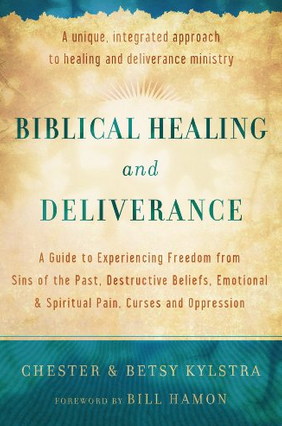
by Mark Hunnemann
My friend, Mark Hunnemann, has authored a much needed Christian worldview analysis of earthbound spirits that addresses the current explosion of interest in ghosts and other paranormal phenomena. Being troubled by a lack of thoughtful analysis within the paranormal community and the unquestioning acceptance of the underlying tenets associated with believing in ghosts by many supposed Bible believing Christians, he felt compelled to write this book.
Mark opens the book by addressing the burgeoning interest in the subject of ghosts. He next lays out what a worldview is and why it is important to approach this topic through the grid of a biblical worldview, since it is the only one that can satisfactorily answer the deepest questions about life and eternity. He then takes the reader through the major topics associated with a worldview analysis, showing why belief in ghosts is antithetical to what the Bible teaches and why ghosts, as defined by the paranormal community, cannot exist.
Mark first demonstrates that a belief in ghosts is at odds with what the Bible teaches about God the Father. The paranormal definition of a ghost is a trapped earthbound spirit. There are various criteria which are generally accepted for why a person might be trapped, which are generally related to the traumatic nature of their death and any unfinished business that might have existed. Mark shows that such a definition must allow for millions and millions of people to become ghosts due to wars, persecutions, and the fragility of life. Such a definition makes spiritual orphans out of these wandering spirits.
All the data shows that ghosts express no connection or interest in God the Father at all. Rather these spirits are self-absorbed loners with a lack of any redeeming qualities, which possess decidedly anti-God and demonic traits. Mark begins in this section of his book to make his case that what are called ghosts are actually demons.
Next Mark looks at how belief in ghosts undermines the biblical doctrine of God’s sovereignty. Rather than God’s being in control of the eternal destinies of all people, according to ghost doctrine, many people end up trapped, perhaps for all eternity, in a kind of limbo state. In this state somehow they manage to avoid both heaven and hell; although, such an existence could be called hell. In this paranormal existence, babies can coexist with men and women who were monsters during their life on earth as regular humans.
Mark shows how such a belief in ghosts actually strips people of hope.
The next area Mark examines is our purpose in life, which is to love God and people. Ghosts show no such emotions or desires to help others. Ghosts seem to have no purpose in life (or should I say afterlife?). During his earthly ministry, Jesus expressed no knowledge or interests in ghosts. If indeed there are vast numbers of trapped spirits all around us who have no way to cross over into their eternal habitation, would not it be expected that Jesus, the Savior, would have helped these “people”?
On the other hand, Jesus had many encounters with demons. Mark once again shows how the only reasonable explanation for ghost activity is demonic.
Hunnemann warns the reader that what is passed off as benign encounters with ghosts is actually dangerous involvement with demons, who are cleverly disguising themselves in order to lure people into ever deepening darkness and oppression.
The next worldview area Mark examines involves history. The Bible teaches that we are given a certain amount of time as humans in which to live our lives, after which death is decisive in determining our destiny. The idea of trapped earthbound spirits wandering for eons is inconsistent with what the Bible teaches in this regard. Christians already participate in eternal life while still here on earth, being seated with Christ in heavenly places. How then would it be possible for us to be trapped in a nether world where we would be separated from God’s presence and power?
The belief in ghosts is incompatible with the biblical doctrine of the believer’s union with Christ.
Next the book looks at the basis for morality as it intersects with belief in ghosts. Mark shows how morality must be based either in an external frame of reference, such as the Bible, or it rests upon the subjective determination of individuals.
If Biblical morality is accepted, communication with ghosts (the dead) is prohibited. Necromancy, as it is called, is strictly forbidden in the Scripture. Mark writes that God bans such communication because it is actually communication with demons, something which is very dangerous and destructive.
In the past, necromancy was practiced by a fringe group in society, but with the surge of interest in ghost hunting, thousands of people see this practice as normal, interesting, and adventurous.
Mark spends some time writing about what are called shadow figures and shows that they must certainly be demons since they have no light, prefer to slink about in the shadows, and universally inspire fear. He examines the notion that ghosts are trapped human spirits, but shows that they do not exhibit common human traits, especially godly traits, which the Bible calls the fruit of the Spirit.
Mark also shows that what is called poltergeist activity has all the earmarks of the demonic; even though the paranormal community relegates it to being some sort of telekinesis subconsciously practiced by disturbed individuals.
Likewise, Mark shows that what the paranormal community calls residual hauntings, energy imprints left as a result of some traumatic event, cannot possibly be unintelligent. In addition they clearly contradict the second law of thermodynamics (entropy) which states unequivocally that all energy dissipates without outside intervention and control. By refusing to acknowledge that such things are actually demonic, those who posit ghosts and other non-demonic spirit activity find themselves at odds with real science and with the biblical worldview.
Mark next shows that ghosts (demons) lack essential traits associated with being human. Human beings have a dualistic nature: they are capable of acts of kindness while at the same time being quite capable of doing evil.
Ghosts, as they are called, do not show the good side of human nature at all. They are also quite limited in their ability to communicate. Some ghosts appear to be capable of throwing rocks and other heavy objects, but never lift a hand to assist another person.
Mark shows that human beings who were kind-natured would be expected to have the same traits after becoming a ghost, but no such activity has been recorded among what are called ghosts. Mark also shows that ghosts show no flair or ability to be creative, but this is not surprising if these beings are actually demons, whose mission is to kill, steal, and destroy, according to the Bible.
Lastly, ghosts show no interest in, longing for, or love for God – something very common in humans.
The last major area Mark covers concerns what happens after we die. Jesus taught clearly that after death believers go to a place of blessing; whereas, evil people go to a place of torment. There is a great chasm between the two so that no one can cross over from one place to another, nor can they go back to communicate with loved ones who are still alive on earth. (See the parable of the rich man and Lazarus in Luke’s gospel.) Jesus spoke of heaven and hell being the only two options, and, since he actually rose from the dead, he must know of which he speaks.
One cannot believe in Christ’s teaching about the afterlife and at the same time maintain a belief in ghosts.
If, as some affirm, it is possible to communicate with the ghosts of John Wilkes Booth and Adolf Hitler, then where is God’s justice? If these human spirits are still wandering and have escaped God’s judgment, this renders God impotent.
Mark concludes:
Simply believing in ghosts becomes part of ones spirituality, even if at first it plays a minimal role…The concept of ghosts is not merely at odds with a few passages of scripture (as significant as that would be); it is contrary to every aspect of the biblical worldview. Indeed without fear of exaggeration, I can say that it is actually hostile to true spirituality. The introduction to the belief in earthbound spirits into a person’s mind has an unsettling effect on everything else. Starting with the undermining of God as our Father, and the belittling of Christ, this concept also diminishes the finished work of Christ on the cross. (p.234-5)
I recommend this book to anyone who wishes to have a better understanding on the subject. Mark brilliantly weaves the Christian worldview into the book so that he communicates the Gospel very well under the format of writing about ghosts. This makes the book an exceptional outreach tool. I can envision using it as a “book club” offering or developing a discussion group around the contents. This book cannot be read lazily or skimmed. Mark took a great deal of time to put it together. It would do the book an injustice to fail to study it and think deeply about its contents. Thanks, Mark, for doing a superb job.



